Music
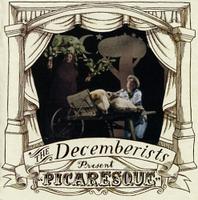 Picaresque, The Decemberists
Picaresque, The DecemberistsThe Decemberists - named after a gang of Russian army officers turned failed revolutionaries at the turn of yesterday's century - are as charmingly anachronistic as their name suggests. It's the kind of band that claims in their biography to travel exclusively via dirigible balloon. Their third album, and their most fully realized, Picaresque still finds band leader Colin Meloy crafting writerly narratives about Andalucian princesses, barrow boys and revenge-obsessed mariners that he makes both strange and hauntingly familiar, lit from behind with heartbreak and mortality. Check album standout "16 Military Wives," which brings in brass horns, organs, and a bouncy piano line to fill out an infectiously hummable melody. It may be the catchiest anti-war song ever.
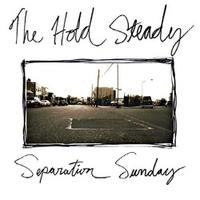 Separation Sunday, The Hold Steady
Separation Sunday, The Hold SteadyCraig Finn, ex-Lifter Puller and now lead singer of The Hold Steady, is not, in fact, a singer. He screams his seedy stories of love, drugs, and dirty bars in an utterly unique, strained, smoker's yell. It's a trick that rides solely on the lyrics, and Finn provides on that count. "I have to try so hard not to fall in love / I have to concentrate when we kiss" he sings on the first track. It's a concept album of sorts, full of recurring characters and the born again. It's acted out over the theatrics of a crackerjack backing band, who pinch classic rock epics and transform Finn's lyrics into something incendiary. Weepy Hammonds swell before choruses, guitars crash, pianos strings snap. They sound like the best bar band in the history of bar bands. On "Charlamagne in Sweatpants," Finn gives us the album in a single bridge. Shouts, "Do you want me to tell it like boy meets girl and the rest is history? / Or do you want it like a murder mystery? / I'm gonna tell it like a comeback story. / 'Cause when we left we were defeated and depressed. / And when we arrived we were ripping high. / We had a gun in the glovebox. / We had some sweet stuff tucked into our socks. / We had Jesus Christ in all his glory." The album's a wicked Sunday morning hangover. This is a good thing.
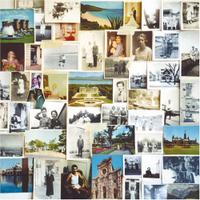 The End of Love, Clem Snide
The End of Love, Clem SnideErstwhile punk rockers Clem Snide have been doing shambling, shaggy, funny-sad alt-country for five albums now. They haven't changed too much on The End of Love; musically, the works shuffle along as always, borrowing liberally from cha-cha, folk, corn-pone country and its alt wing. The instrumentation is laid on a little thicker, and the guitar lines have a new meaty twang. Lyrically, Eef Barzelay puts in a well-turned performance, with jokey songs that cradle real feeling. See "Jews For Jesus Blues," in which he sings "Now that I'm found / I miss being lost." His nasal whine turns alternately mournful and sarcastic, sounding like Buddy Holly as sung by...well, by somebody named Eef. Album standout is "Made For TV Movie," which - like all great Clem Snide tracks - starts with a gimmick, in this case a Lucille Ball biopic. But it mines it for real feeling, concluding "they would never make a movie / If everything was great / Because happiness is boring / It's always black and white / And the good times never last / And the chocolates move to fast / For us all."
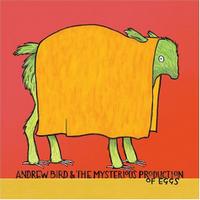 Andrew Bird & The Mysterious Production of Eggs, Andrew Bird
Andrew Bird & The Mysterious Production of Eggs, Andrew BirdViolinist prodigy and professional whistler Andrew Bird has slowly assembled a sound out of shards of music from the last century that is both unique and wholly contemporary. The arrangements are intimate and organic, featuring fuzzy guitars, pizzicato strings, clicking percussion, and, of course, whistling. The lyrics are reserved and often funny, and twist unexpectedly into subdued melodies that slowly reveal layers of emotion. Among standouts like the awkwardly titled yet infectious "A Nervous Tic Motion of the Head to the Left" and "MX Missiles" (which contains an oblique and threatening reference to a parade of "legionnares with two-by-fours marching off to war"), the record peaks on the second-to-last track with the drop dead gorgeous "Tables and Chairs." Beginning reserved and acoustic, it swells to a driving, post-apocalyptic climax where there "are no more countries / no currencies at all" and the survivors "throw away survival packs." The way Andrew Bird puts it, it sounds damn near joyous.
Books
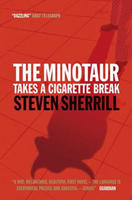 The Minotaur Takes A Cigarette Break, by Steven Sherill
The Minotaur Takes A Cigarette Break, by Steven SherillIn Steven Sherill's accomplished debut novel, he takes an idea that sounds like a snotty postmodern art-school premise - the Minotaur as a roadhouse chef living in a trailer park in the American South - and invests it with a remarkable restraint and humanity. The Minotaur has been dimished by his thousands of years of existance, blunted and reduced by age. The bloodlust has been dimmed. He has difficulty speaking, because of the construction of his mouth. His observations of human nature are far more eloquent than his actions. Sherill is a good enough writer not to get swept away by the cleverness of his conceit, and to spend time fleshing out small details and moments - the alterations M has to tailor into his shirts, the dusty confines of trailer life, the quirks and foibles of the humans he interacts with. In the process, he creates a work both quietly moving and strangely hopeful.
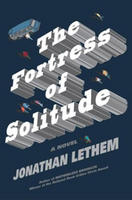 Fortress of Solitude, by Jonathan Letham
Fortress of Solitude, by Jonathan LethamJonathan Letham's work has always revolved around collisions of pop culture and, increasingly, a powerful evocation of place. A greater emphasis on depth of character and his roots in the city that began with Motherless Brooklyn continues to great effect on the large, semi-autobiographical Fortress of Solitude, as he revisits his childhood. The book vividly evokes the Brooklyn coming-of-age of Dylan, the subject of the first half and the narrator of the second. It revolves around some of Letham's very personal interests - music, comic books, race, gentrification - as refracted through Dylan's childhood friendship with Mingus, a black kid who lives on the same block, and through the adult circumstances that end dividing them.
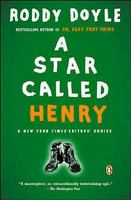 A Star Called Henry, by Roddy Doyle
A Star Called Henry, by Roddy DoyleThe first in a planned trilogy narrated by the prodigious, brilliant, egotistical, precocious Henry Smart - Dublin orphan, Irish revolutionary, hitman and fugitive before he hits his mid-twenties - A Star Called Henry is giddy with language, with dramatic events, with hyperbole. Dialogue is rat-a-tat and breathless. Violence and wrenching poverty are everywhere. Henry often carries himself away with the story, vividly painting up events until they loom larger than larger than life. It's a marvelously entertaining birth of the Irish nation, and Doyle is clever enough to subvert all of this overstatement by puncturing it at the end in an abrupt reversal that leaves a good deal of Henry's tale of the war under queasy suspicion. The second novel, already out, may have gone awry - it will be hard to tell until Doyle wraps up the trilogy - but the first stands on its own feet.
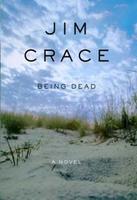 Being Dead, by Jim Crace
Being Dead, by Jim CraceJim Crace is a kind of working genius of the English writing world, tackling strange and utterly different subjects with each novel and folding them gently into a kind of universal resonance. He has invented an entire Third World continent (the appropriately title Continent), written about stone-age flint workers (The Gift of Stones), produced a book composed entirely of 60-something short pieces revolving around food (The Devil's Larder), and put out a novel about Jesus' forty days in the desrt (Quarantine) in which Jesus is not even the main character. In Being Dead, the first thing that happens to his married Australian biologists is exactly that. They are murdered on the beach where they originally met. From there it goes both backwards and forwards, tracing their relationship from the beginning even as their bodies disintegrate. Crace paints the biology of natural decomposition in lovingly rendered, deliberately unsentimental prose. The result is elegaic and - like the rest of his work - unreservedly brilliant.

No comments:
Post a Comment